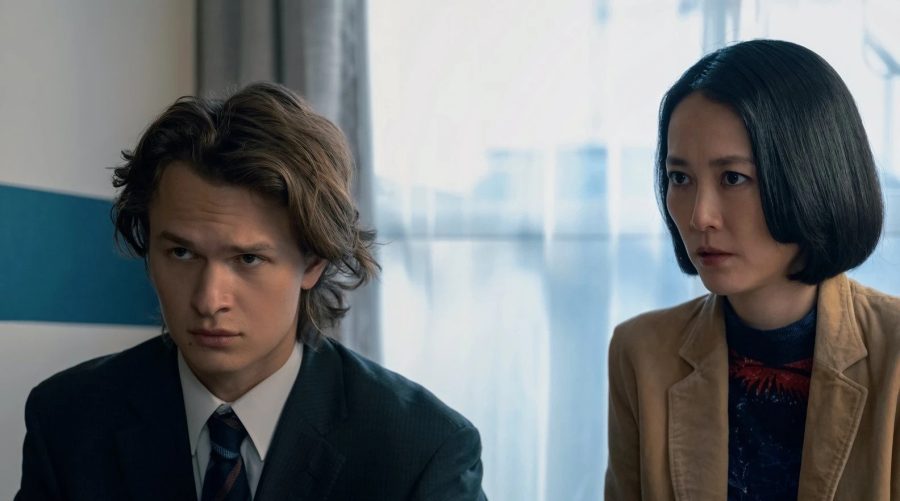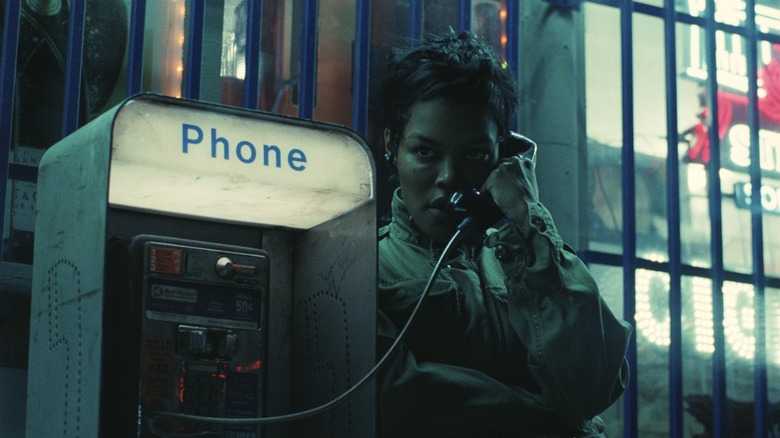The penultimate episodes of Season 1 add interesting depth to Tokyo’s underworld, but too many new elements leave the show feeling unfocused.
Ansel Elgort was the first celebrity I saw in real life. It was the summer of 2018. I’d won a high school creative writing contest and flew to New York City to attend the awards ceremony at Carnegie Hall. Before the ceremony itself, special guests took the stage to give a speech about the power of art and writing. You never knew who was going to show up — past presenters include Tina Fey and Michelle Obama. The year I went, the lineup featured the inexplicable combination of Elgort and R.L. Stine, the author of the “Goosebumps” book series. Elgort ran up and down the stage like it was a concert. He even jumped, then fell off the stage to high-five people in the front row. Then, he climbed back up to give a speech about how we should pursue what we love, even if it doesn’t make us any money. At the time I thought this sentiment was out of touch coming from Elgort, the son of renowned fashion photographer, Arthur Elgort, and a presumable multi-millionaire from his several successful films. Still, some part of his speech must’ve resonated with me, because I’m majoring in English literature with dreams of becoming a journalist — a profession seldom described as lucrative.
The more I watch “Tokyo Vice,” the more I see the similarity between Elgort’s gleeful, rockstar attitude at the awards ceremony and the ‘investigate hard, party harder’ attitude of his Adelstein character. Perhaps it’s a case of casting someone who’s especially fit to play the character because they can bring themselves to the role. In the new batch of episodes, we see Adelstein doing a little journalism and a little clubbing, sometimes at the same time.
First, the journalism: episode six has Adelstein and Hitoshi Ishida (Shun Sugata) back to trading information. Adelstein learns the time and place a drug shipment is flying into the airport for the rival Tozawa gang, but Detective Katagiri (Ken Watanabe) warns him that there’s always a cost to information and refuses to act on the tip. Adelstein goes to a different detective, ladies-man and general schmoozer Miyamoto (Hideaki Itō). The raid on the plane reveals no drugs, and a scathing article about the detectives’ incompetence burns Adelstein’s bridges with the police.
On the clubbing side of things, Adelstein bumps into an old theater buddy from Missouri and takes him to the nightclub. There, he spots Tozawa’s mistress Misaki (Ayumi Ito) and tries to flirt his way into information about ailing gang boss Shinzo Tozawa (Ayumi Tanida). Just as the duo get comfortable, the Yakuza show up and take her away, threatening his naive theater buddy at knifepoint for trying to intervene.
Tozawa’s scenes in episode seven show that he’s not quite the threat he pretends to be. He has a mysterious, unexplained ailment that requires ditching red meat and getting an injection to be able to appear at his own birthday party. The illness arc adds an interesting element to the brewing war between Tozawa’s gang and rival Chihara-Kai. Tensions aren’t soothed much by the peace talks that open episode six. Tozawa’s group may be newer and hungrier, but their leader is hanging onto his health by a dangerously thin thread — a fact that’s exposed when he collapses at the end of his birthday party. I’m curious if Tozawa’s illness will make Chihara-Kai see him as an easy target to defeat, or if having an expiration date will make him more dangerous because he knows he’s already heading toward the end. Whatever the case, it’s details like this that make “Tokyo Vice” stand out from your typical neo-noir series.
The Yakuza plotline isn’t the only one getting more complex. I mentioned in the last recap how the series left a note of ambiguity to Samantha’s (Rachel Keller) motives for beginning to date Sato (Shô Kasamatsu). Episodes six and seven make the dynamic clear. After hooking up and talking about their domineering fathers, Samantha — who now calls Sato “baby” at least once per conversation — shares that the private investigator from the last few episodes is trying to extort her for sex. She asks Sato to intervene, then acts surprised when he handles the situation by killing the guy. The shock doesn’t last for long. When fellow hostess club employee Polina (Ella Rumpf) goes missing after racking up too much debt at a host club, Samantha sics Sato on Polina’s punchable ‘boyfriend’ from the club. After the exchange, Sato has a moment of clarity and confronts Samantha about how her view of him has changed since he murdered the PI. The duo’s implied breakup isn’t a surprise, but the speed with which Samantha shows up at Adelstein’s doorstep is. Clearly, she’s not particular about who she uses to get what she wants.
Herein lies a parallel between Samantha and Adelstein: they both pull people into the crossfire while trying to accomplish their own goals. In Adelstein’s case, his persistence in talking to sources like Misaki leaves them vulnerable to Yakuza violence, while Samantha’s usage of Sato makes him feel like he has little value outside of his criminal activities. The difference is that Adelstein is shown to have remorse for the people he hurts, while Samantha just keeps moving. For him, it’s a tough part of his job, but for her, it’s a means of survival. That might be why she doesn’t stop and reflect, because there’s more at stake for her personally if she doesn’t use these people.
There’s only one episode left of this season, and more threads than could possibly be resolved in its hour-long runtime. Even this recap hasn’t mentioned all of the plots and subplots the show introduced this week: Detective Katagiri becomes suspicious of Detective Miyamoto’s involvement in the botched raid, Adelstein snaps at his theater buddy when asked about his sister’s mental health, and Sato’s father has a stroke which his mother blames him for. It seems the show’s creators, like the characters they write, don’t know how to pump the brakes, while the primary mystery of the predatory loan company has fallen to the wayside. I can’t imagine the ending is going to be tidy or satisfying — which is regrettable, given the show’s promising start.
Grade: B
Created by: J.T. Rogers
Starring: Ansel Elgort, Ken Watanabe, Rachel Keller
Release date: April 21, 2022
Rated: TV-MA
Image courtesy of High on Films
TV Recap: “Tokyo Vice” – Episodes 6-7
May 1, 2022
1
0
About the Contributor

Bailey Bujnosek, Senior Staff Writer
Bailey is a fourth-year English literature and psychology double-major who watches too much reality tv. She likes listening to Mitski, Ricky Montgomery, & Fiona Apple. Her favorite movie is “Whiplash,” the “Black Swan” of jazz drumming.
More to Discover










poppy playtime • Jul 4, 2022 at 7:31 pm
I had a lot of harvest after seeing this post of yours! Before, I used to play games, this is a fun game for entertainment, but now I will follow you, read your articles will have more knowledge.